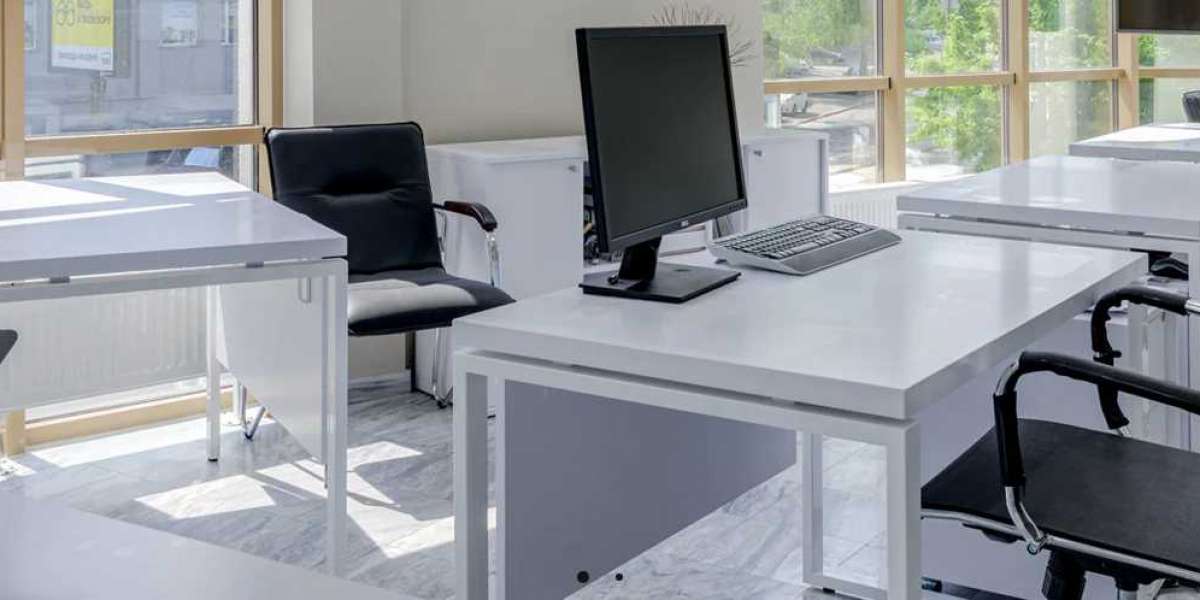Modern office furniture plays a critical role in shaping the functionality, aesthetics, and overall productivity of today’s work environments. As workspaces evolve to meet the needs of a diverse and dynamic workforce, modern office furniture contributes in several key ways:
1. Enhancing Ergonomics and Comfort
- Ergonomic Design: Modern office furniture emphasizes ergonomic design to support employees' health and comfort. Adjustable chairs, sit-stand desks, and supportive lumbar features help prevent musculoskeletal issues and promote better posture.
- Personalization: Adjustable components and customizable features allow employees to tailor their workspaces to their individual needs, enhancing comfort and reducing physical strain.
2. Supporting Flexibility and Adaptability
- Modular Systems: Modular furniture systems enable flexibility in office layouts. Workstations can be easily reconfigured to support different work styles, team sizes, and collaborative needs, making it easier to adapt to changing requirements.
- Multi-Functional Furniture: Modern office furniture often includes multi-functional pieces that serve multiple purposes, such as desks with built-in storage or seating that doubles as workspace. This maximizes space efficiency and supports a variety of work activities.
3. Fostering Collaboration and Communication
- Collaborative Spaces: Modern furniture designs incorporate collaborative areas, such as communal tables, lounge seating, and informal meeting spaces. These areas encourage teamwork, spontaneous interactions, and creative brainstorming.
- Technology Integration: Furniture that integrates technology, such as built-in charging stations, cable management, and AV equipment, supports seamless communication and collaboration, both in-person and virtual.
4. Reflecting Company Culture and Brand Identity
- Aesthetic Appeal: Modern office furniture is designed to align with a company’s brand identity and values. Stylish, contemporary designs can reinforce the company’s image and create a cohesive, professional environment.
- Cultural Fit: Furniture choices reflect and reinforce company culture. For example, open, collaborative spaces may reflect a culture of innovation and teamwork, while private, quiet areas support focused, independent work.
5. Promoting Employee Well-Being
- Health and Wellness: Modern furniture incorporates features that promote health and well-being, such as anti-fatigue mats, ergonomic chairs, and standing desks. These elements contribute to physical comfort and reduce workplace stress.
- Work-Life Balance: Flexible and comfortable furniture helps employees balance their work and personal lives, especially in hybrid or remote work setups. This support contributes to overall job satisfaction and work-life integration.
6. Enhancing Space Efficiency
- Compact Solutions: Modern furniture designs often focus on space-saving solutions, such as compact desks, vertical storage, and modular systems. These solutions help make the most of available space, particularly in smaller offices or shared work environments.
- Flexible Layouts: Furniture that can be easily moved or reconfigured supports dynamic office layouts. This flexibility allows spaces to be adapted for different uses, such as meetings, individual work, or collaborative projects.
7. Encouraging Sustainability
- Eco-Friendly Materials: Modern office furniture often uses sustainable materials and eco-friendly manufacturing processes. This commitment to sustainability reflects a company’s values and reduces its environmental impact.
- Energy Efficiency: Furniture designs that incorporate energy-efficient lighting and other green technologies contribute to a more sustainable and environmentally friendly workplace.
8. Supporting Technology Integration
- Smart Furniture: Modern office furniture often includes technology integrations, such as built-in charging ports, wireless charging stations, and smart controls for lighting and climate. These features enhance convenience and support a tech-savvy workforce.
- Connectivity Solutions: Furniture that supports easy connectivity for devices and AV equipment ensures that employees can seamlessly integrate technology into their work processes.
9. Improving Aesthetics and Ambiance
- Design and Style: Modern furniture designs focus on aesthetics, creating visually appealing work environments. The use of contemporary styles, colors, and materials enhances the overall ambiance and contributes to a pleasant work atmosphere.
- Comfort and Atmosphere: Furniture that prioritizes comfort and design helps create a positive and engaging workspace, improving employee morale and satisfaction.
10. Enhancing Focus and Productivity
- Focused Work Areas: Modern furniture designs include options for creating dedicated, distraction-free workspaces. Privacy screens, soundproof panels, and adjustable workstations support focused, productive work.
- Dynamic Work Environments: Flexible furniture solutions that adapt to different tasks and work styles help maintain productivity and support a range of activities, from collaborative projects to solo work.
Conclusion
Modern office furniture plays a vital role in shaping the work environment by enhancing ergonomics, supporting flexibility, reflecting company culture, and promoting employee well-being. By integrating stylish, functional, and sustainable designs, modern furniture contributes to a productive, comfortable, and engaging workspace. As work environments continue to evolve, modern office furniture will remain a key factor in creating spaces that meet the needs of today’s diverse and dynamic workforce.








